LONDON: It is exactly four years since Donald Trump stood on the South Lawn of the White House, flanked by a beaming Benjamin Netanyahu and the foreign ministers of Bahrain and the UAE, each holding a copy of the Abraham Accords Declaration.
The signing of the agreements on Sept. 15, 2020, a process driven by the Trump administration, appeared to be the most significant development in the Arab-Israeli peace process for years.
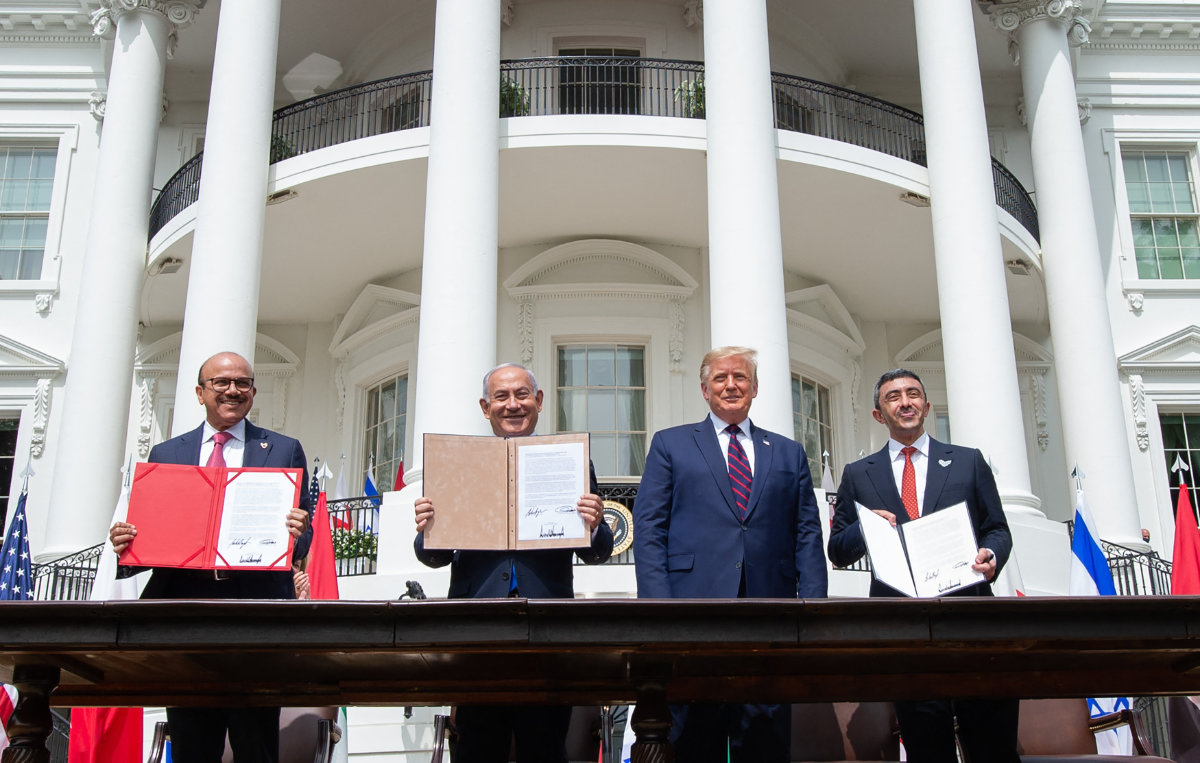
In the historic Abraham Accords, Bahrain and the UAE recognized Israel’s sovereignty and agreed to normalize diplomatic relations. (AFP/File)
Both Bahrain and the UAE recognized Israel’s sovereignty and agreed to normalize diplomatic relations — the only Arab states to have done so since Egypt in 1979 and Jordan in 1994.
In so doing, as the one-page declaration signed by all four parties affirmed, they recognized “the importance of maintaining and strengthening peace in the Middle East … based on mutual understanding and coexistence,” and vowed to “seek to end radicalization and conflict and to provide all children a better future.”
A number of “firsts” followed. For the first time, it became possible to call direct to Israel from the UAE, and Emirati ships and planes began to dock and land in Israeli ports and airports. Various trade and business deals were made.
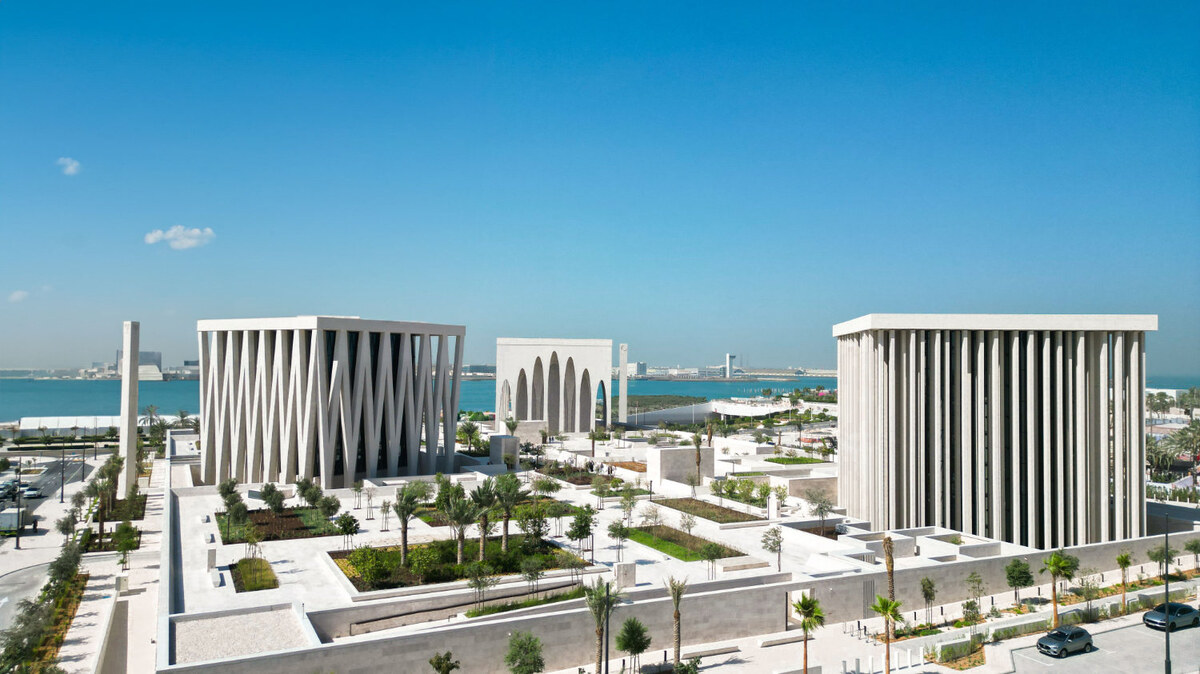
The Abraham Accords ushered in an era of understanding that saw the opening of Abu Dhabi’s Abrahamic Family House, which has been featured in TIME Magazine's annual list of the World’s Greatest Places. (WAM photo)
The region’s major player was missing from the White House photo op that day in 2020, but speculation that Saudi Arabia would soon follow suit and normalize relations with Israel was rife.
Three years later, in a groundbreaking and wide-ranging interview with Fox News, broadcast on Sept. 20, 2023, Crown Prince Mohammed bin Salman gave the biggest hint yet that such a historic breakthrough might be afoot.
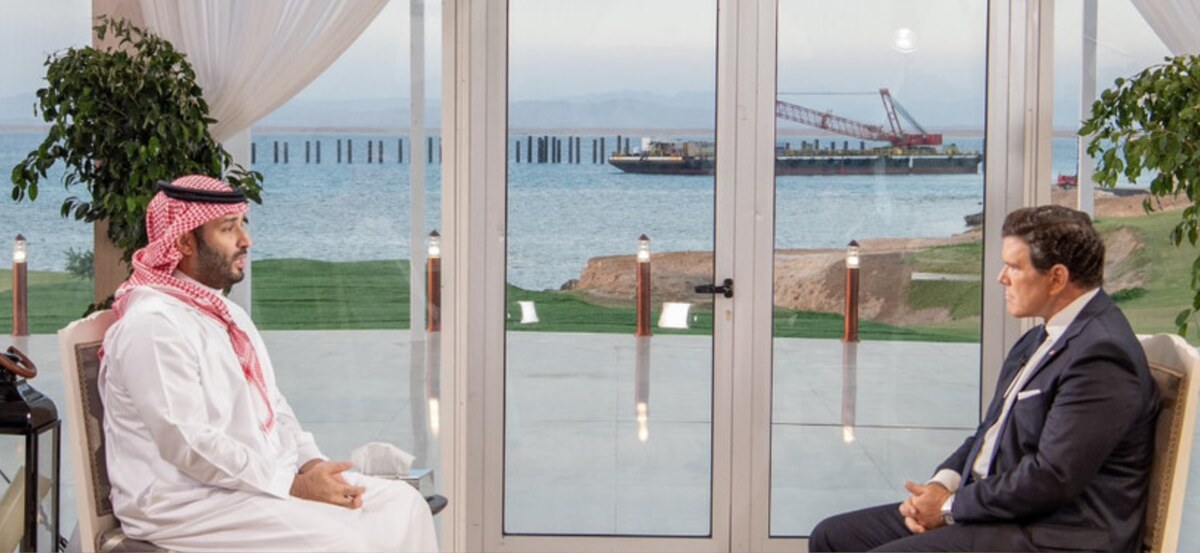
Crown Prince Mohammed bin Salman being interviewed by Bret Baier of Fox News in September 2023. (AN Archives)
“Every day we get closer,” the Saudi crown prince told Bret Baier of Fox News, adding Saudi Arabia could work with Israel, although he added that any such agreement, which would be “the biggest historical deal since the end of the Cold War,” would depend on positive outcomes for the Palestinians.
“If we have a breakthrough of reaching a deal that give the Palestinians their needs and make the region calm, we’re going to work with whoever is there,” he said.
Just over two weeks later, on Oct. 7, 2023, Hamas and its allies attacked Israel. All bets were off, and the Abraham Accords seemed doomed to go the way of every previous initiative in the Israeli-Palestinian peace process since the Madrid Conference of 1991.
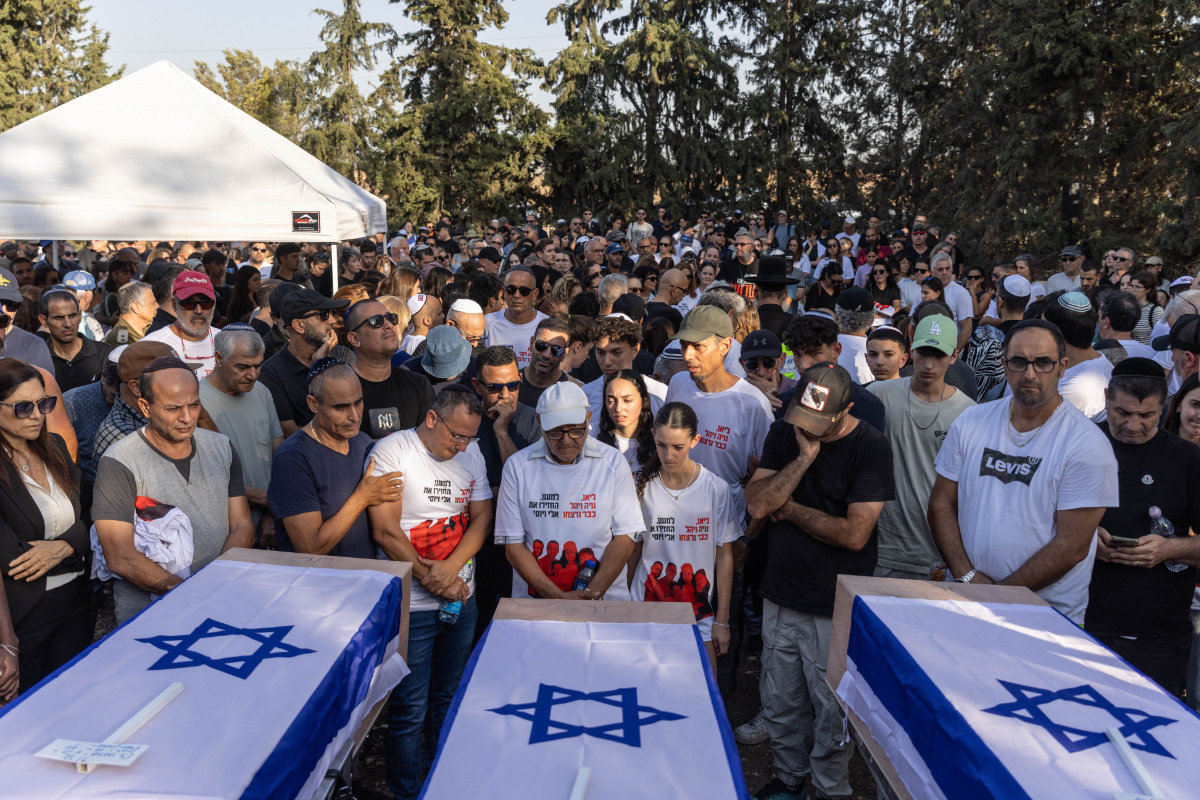
People pay tribute near the coffins of some of the people killed in the October 7 deadly attack by Hamas militants from the Gaza Strip, during a funeral in Kfar Harif in southern Israel, on Oct. 25, 2023. (AFP)
But, say some commentators, despite the death and destruction of the past year, it would be wrong to write off the accords completely, and whether or not the process can be resuscitated could depend on which of the two main candidates in the coming US presidential election is handed the keys to the White House by the American electorate on Nov. 5.
“I’m not sure I would describe the accords as being on life support,” said Sanam Vakil, director of the Middle East and North Africa Programme at Chatham House (the Royal Institute of International Affairs).
“They are actually weathering this very difficult storm of the Gaza war. That is certainly putting the leadership and the decision-making in the UAE and Bahrain under a microscope, and of course that poses difficult domestic dynamics for these leaders to navigate.
“But at the same time, they remain committed to the Abraham Accords and haven’t shown any willingness to walk back from them or to break diplomatic ties. They in fact are arguing that by having diplomatic ties with Israel, they have a better avenue to support Palestinians and work behind the scenes with the Israelis.”
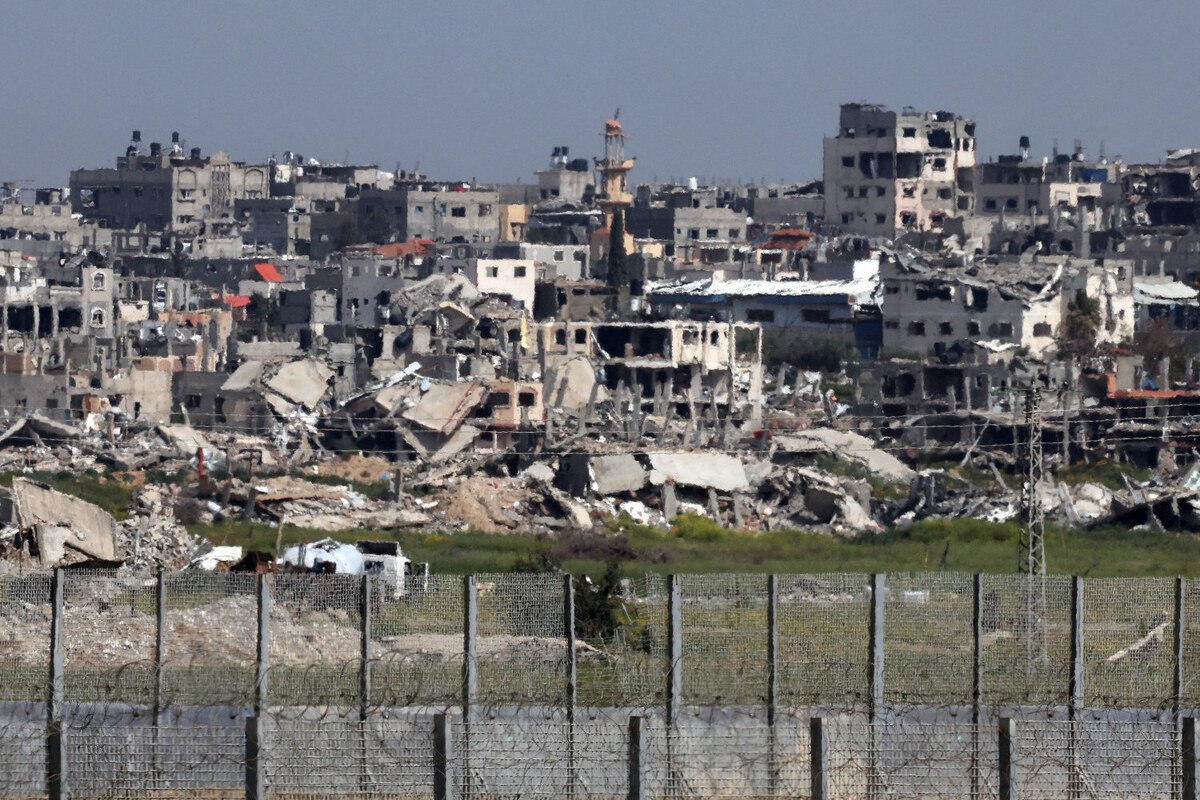
This picture taken on March 28, 2024 from Israel's southern border with the Gaza Strip shows buildings which have been destroyed by Israeli strikes, amid the ongoing battles between Israeli forces and Hamas militants since the October 7 attack on southern Israel. (AFP)
As for the Israelis, “normalization with Saudi Arabia is not on the cards for now, partly because obviously the Israeli leadership has different priorities right now, and after Oct. 7, the price of normalization became higher.
“And I think the Israeli leadership is calculating that if they wait this out — and perhaps over-anticipating that the Saudis will still be there, which could be a miscalculation — the price that they have to pay for normalization will go down again.
“I think that they’re assuming that the conditions in the region might change, or perhaps if the outcome of the US election leads to a Trump victory, that might alter what they need to do, what commitments they need to make toward the Palestinians that would satisfy the Saudis.”
INNUMBERS
• 18% Decline in Israel’s overall trade with outside world since eruption of Gaza war in October 2023.
• 4% Decline in trade between Israel and 7 Arab countries that have normalized ties with it during the same period.
• 14% Drop in Israel-UAE trade in the last quarter of 2023 following the conflict.
(Source: Abraham Accords Peace Institute)
But for Brian Katulis, senior fellow for US foreign policy at the Middle East Institute in Washington, “it’s a coin toss” whether a Trump or Kamala Harris administration would be most likely to reinvigorate the Abraham Accords.
“As we saw in the candidates’ debate on Tuesday evening, these issues don’t really matter to either of the leaders or the political discourse in America right now,” he said.
“These questions, of the Abraham Accords, of Israel-Palestine or of Iran, don’t really drive the political and policy debate in a major way compared to US domestic issues — immigration, abortion, who we are as a country, inflation.
“When it comes to foreign policy issues, China is much more relevant as a political question.”
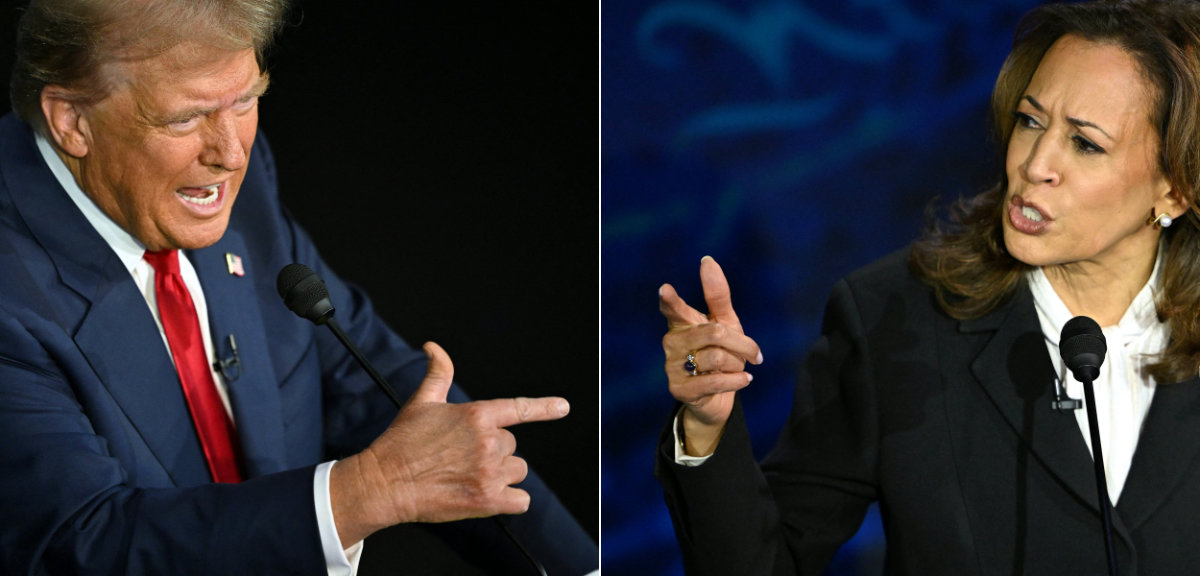
Republican presidential candidate Donald Trump and his Democratic rival Kamala Harris participate in a debate in Philadelphia, Pennsylvania, on September 10, 2024. (AFP)
Although, as the father of the Abraham Accords, Trump might be assumed to be keen to re-engage with an initiative he once saw as a foundation stone of his legacy — in January, a Republican lawmaker nominated him for the Nobel Peace Prize — “he’s just so erratic as a leader, and I don’t know that he’ll be focused on it,” Katulis said.
“Harris may actually put more time and thought into it. In the debate, she was the only candidate who talked about a two-state solution, and that’s music to the ears of anyone in places like Saudi Arabia, which have been calling for a state of Palestine forever.”
But Saudi Arabia is unlikely to shift far from the position it took in 2002, when it was the author of the Arab Peace Initiative, which was adopted by the Council of Arab States.
This offered Israel peace and normalization of relations with all 22 Arab states, in exchange for “full Israeli withdrawal from all the Arab territories occupied since June 1967, in implementation of Security Council Resolutions 242 and 338, reaffirmed by the Madrid Conference of 1991 and the land-for-peace principle, and Israel’s acceptance of an independent Palestinian state with East Jerusalem as its capital.”
Merissa Khurma, program director of the Middle East Program at the Wilson Center, said: “And of course, the Abraham Accords agreements completely flipped that formula because they offered normalization first.
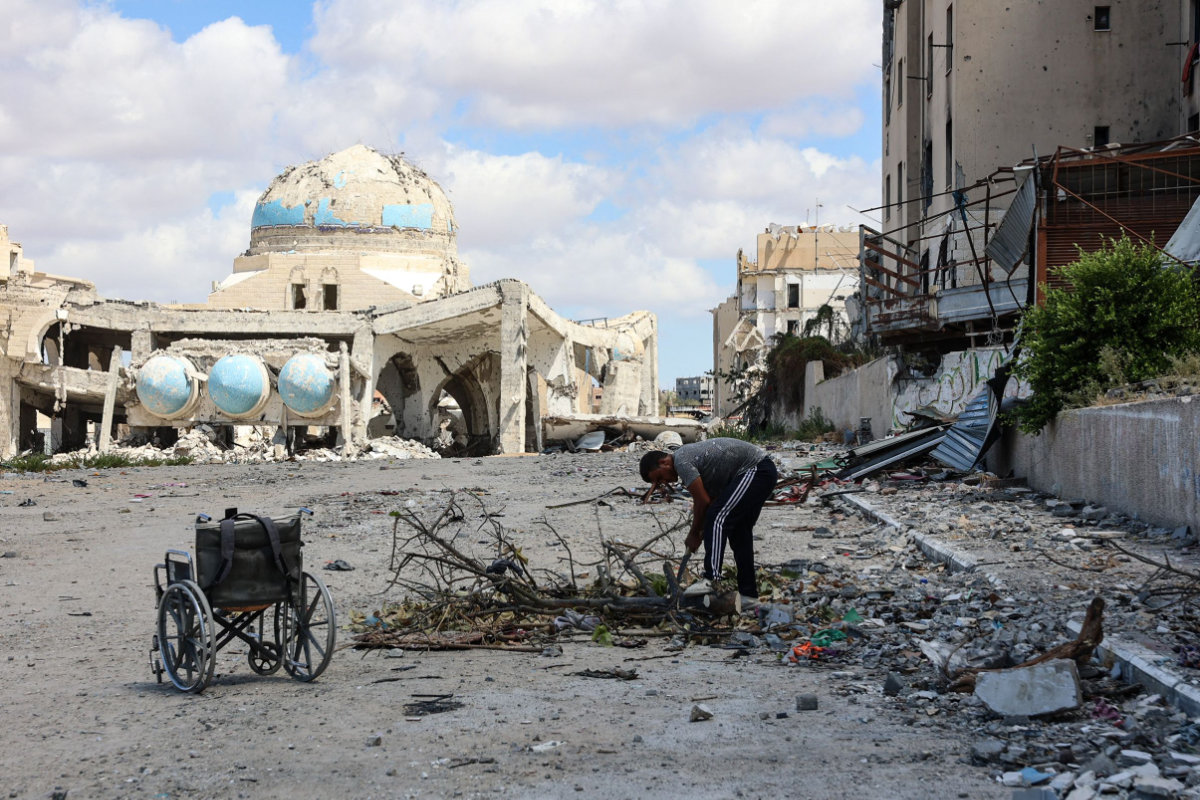
Israel's revenge attacks against Palestinians in Gaza has not spared houses of worship, making efforts at restoring peace more difficult. (AFP)
“The premise they presented was that it was through these channels of communication that have now been established that we can try to address the thorny issues in the Palestinian-Israeli arena.
“But we all know that the reality on the ground was very different, that settlements and outposts have expanded and with the emergence of the most right-wing government in Israel’s history, all of that has been accelerated.
“I’ve spoken to officials and thought leaders in the UAE, Bahrain and Morocco, and there’s consensus that the Abraham Accords are, at best, on pause. Someone even said the accords are in a coma and they will need to be resuscitated after the war ends in Gaza.”
Harris, Joe Biden’s vice president, is likely to follow in his administration’s footsteps to some extent when it comes to the Abraham Accords.
“The Biden administration was a bit slow to embrace the model of the accords when they came into office, really, because, you know, they saw it as Trump’s legacy, and they were very partisan in their approach,” said Vakil.
“But they did come around, and they did begin to embrace this idea of integration through normalization. The reality, though — and this is what we’ve seen born out since Oct. 7 — is that without providing a mechanism and commitment to restart a peace process, and one that allows Palestinians to have self-determination, the accords, on their own, cannot deliver Israel’s security or provide the region with that integration, that economic and security integration that they’re seeking.”
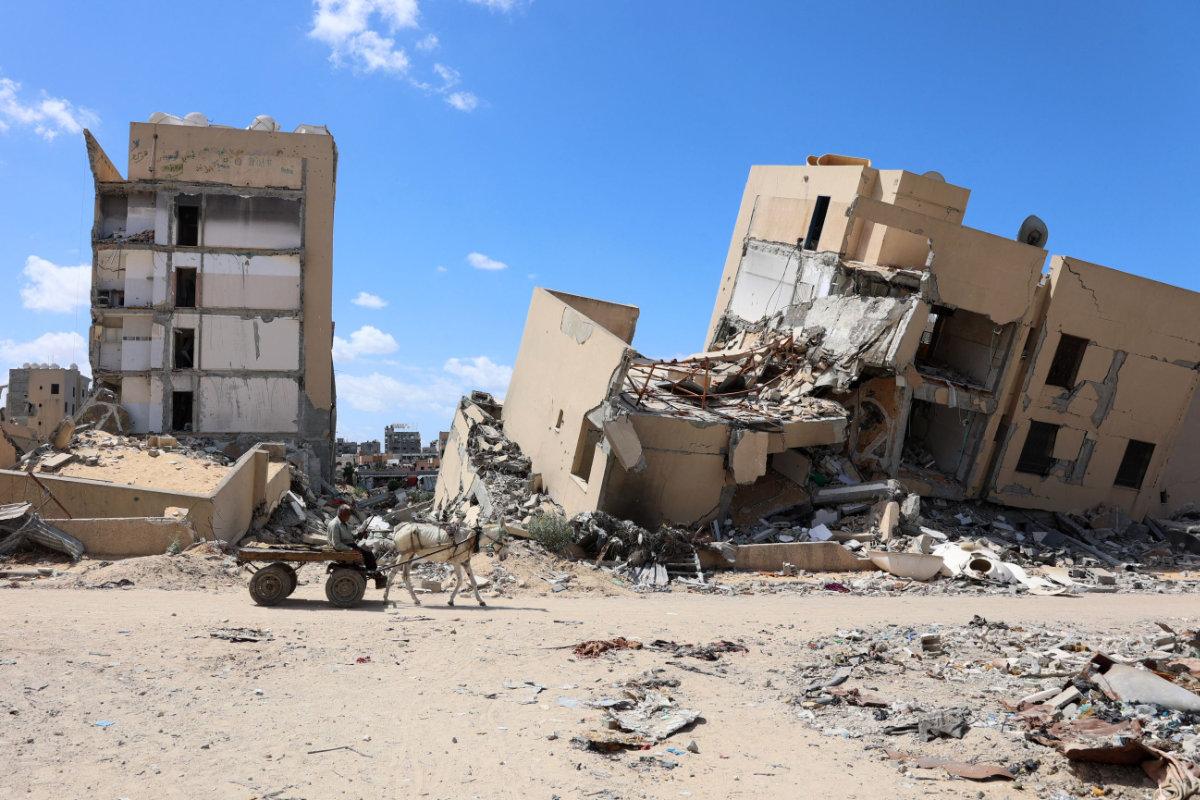
Israel's relentless revenge attacks that has killed more than 40,000 Palestinians in Gaza to date has only served to derail attempts at restoring peace in the region. (AFP)/File)
A reboot of the agreements in the wake of the cessation of the current hostilities would be an opportunity — if not a precondition — to reconfigure them and put Palestinian demands at the top of the agenda.
“The Abraham Accords was a well-intentioned initiative led by countries in the region that wanted to prioritize their national security and economic interests,” Merissa Khurma said.
“No one can say taking the path of peace is a bad idea. But the heavy criticism from the region and the Arab public in general, which you can see in the polling from 2021 until today, is that in doing so they basically sidelined the Palestinian-Israeli conflict and flipped the formula that was the essence of the Arab Peace Initiative led by Saudi Arabia in 2002.”
ALSO READ:
• No Saudi-Israeli normalization without Palestinian state: Prince Turki
• The costs and benefits of Arab-Israeli normalization on Abraham Accords’ two-year anniversary
• Abraham Accords prove no such thing as ‘permanent enemies,’ says former Trump adviser Kushner
• How the Abraham Accords have influenced Arab-Israeli relations, one year on
To move forward successfully, said Katulis, whoever becomes America’s next president must “prioritize Palestine and make it a big item on the agenda.”
To do this, they should “go back to good old-fashioned collective diplomacy and form a regional coalition with a new international framework to create the state of Palestine. It’s ripe for the picking, and I would lean into it.”
Katulis added: “I would advise either President Trump or Harris to work by, with and through all of these countries, from Saudi Arabia to Morocco and others, those that have accords and those that want to. I would spend at least six months assembling everything that people have argued since the war started, and what they’d be willing to do, and what they’d be willing to invest, and present to Israel, the Israeli public and its politicians an offer — a state of Palestine that is going to be good for your security and will also insulate you from the threats presented by Iran.
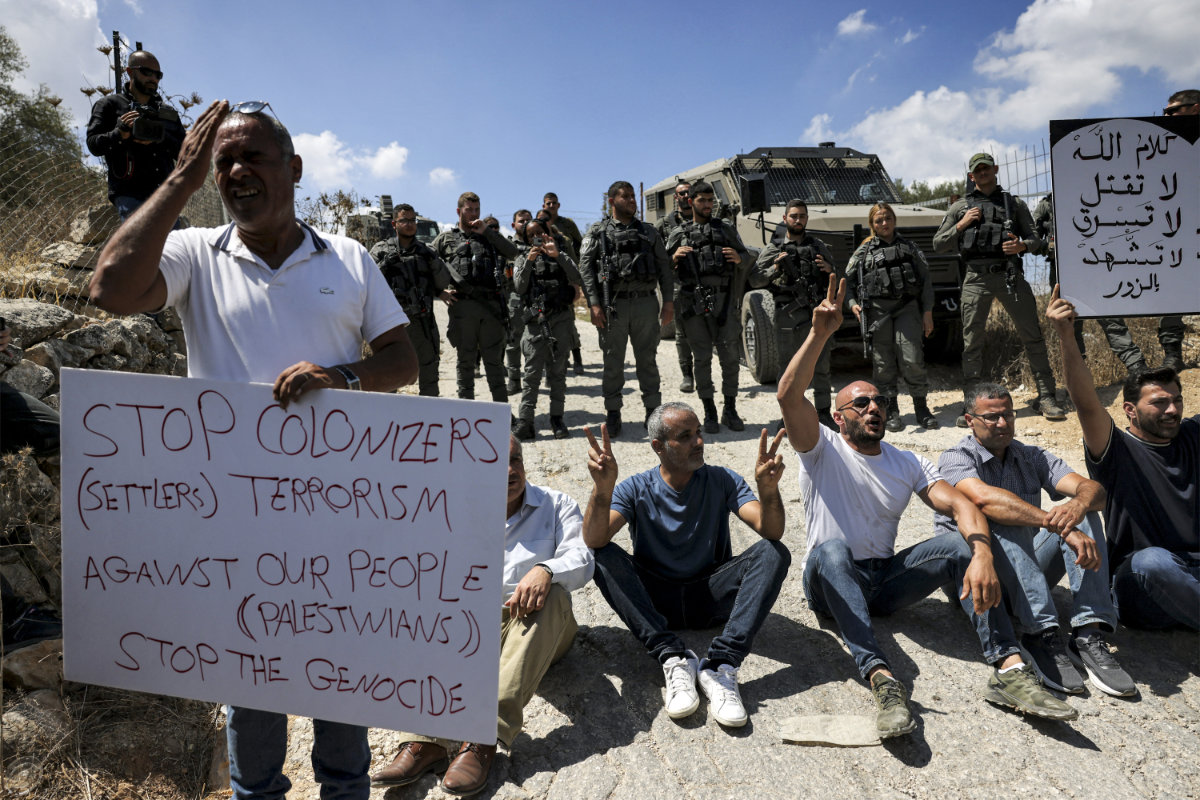
Palestinian demonstrators sit before Israeli border guards in Beit Jala, occupied West Bank on September 3, 2024 in solidarity with a Palestinian family whose land was taken over by armed Israeli settlers planning to build a new outpost, aggravating animosities. (AFP)
“It is important to think practical, to think realistic, and realistic is that the next US president is not going to actually attend to a lot of these issues, so we’ve got to work with and through people diplomatically.
“Use that new energy in the UAE and Saudi Arabia and other places, use the resources they have to actually do some good, and that good should have as its endpoint making an offer to say, this is a state of Palestine which will coexist with Israel.”
That new energy, said Khurma, was evident at the 33rd summit of the Arab League in Bahrain in May.
In the joint declaration issued afterward, the league reiterated “our unwavering position and our call for a just and comprehensive peaceful settlement of the question of Palestine, as well as our support for the call of His Excellency President Mahmoud Abbas, President of the State of Palestine, for an international peace conference to be convened and for irreversible steps to be taken to implement the two-state solution, in accordance with the Arab Peace Initiative and authoritative international resolutions, with a view to establishing an independent and sovereign Palestinian State, with East Jerusalem as its capital, on the basis of the lines of 4 June 1967.”
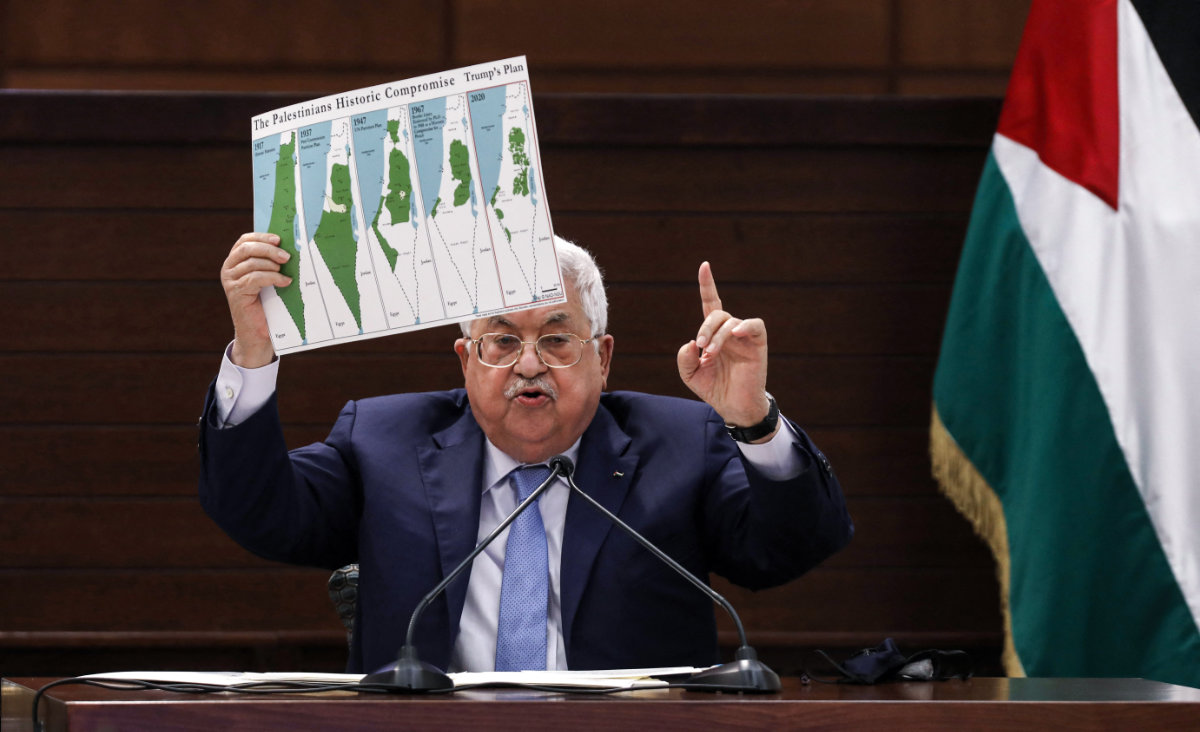
Palestinian Authority's President Mahmud Abbas holds a placard showing maps of historical Palestine as he meets by video conference with representatives of Palestinian factions gathered at the Palestinian embassy in Beirut on September 3, 2020,. (POOL/AFP)
For whoever becomes the next president of the US, this initiative could be the vital missing component needed to jumpstart the Abraham Accords.
“When they met in Bahrain, the Arab countries revived the Arab Peace Initiative and took it a step further,” Khurma said.
“In the US media, there was very little coverage, but the declaration is very important because it shows that even in the midst of this horrific war, these countries are still willing to revive the Arab Peace Initiative, a peace plan with Israel, and to extend a hand to normalize with Israel, but of course, without leaving the Palestinians behind.”

























